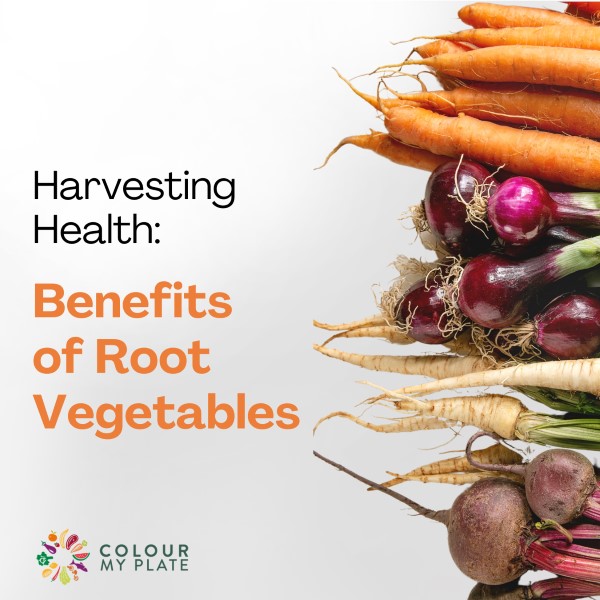
![]() 15 Nov 2023
15 Nov 2023
Root vegetables may not always be the stars of your plate, but they are certainly vital when it comes to nutritional value. These humble underground treasures offer a wide range of health benefits, making them a must-have in your diet. In this blog, we will explore the world of root vegetables and uncover their incredible potential to enhance your well-being.
Root vegetables include a diverse group of plants, all sharing one common feature: they grow beneath the soil’s surface. This unique growing environment provides them with an abundance of essential nutrients, making them a nutritional powerhouse. Let’s explore some of the most popular root vegetables and their health benefits.
Carrots are rich in beta-carotene, which the body converts into vitamin A. This nutrient is essential for good vision, a strong immune system, and healthy skin. Additionally, carrots are a great source of fiber, aiding in digestion and promoting a feeling of fullness, making them an excellent choice for weight management.
Sweet potatoes are loaded with vitamins, minerals, and fiber. They are a fantastic source of vitamin C, which boosts your immune system, and vitamin A, which supports skin health and vision. The fiber in sweet potatoes helps regulate blood sugar and keeps you feeling full and satisfied.
Beets are known for their vibrant red color, which comes from the antioxidant Betalain. These antioxidants help reduce inflammation and lower the risk of chronic diseases. Beets also contain nitrates, which may improve blood flow and lower blood pressure.
Radishes are packed with vitamin C, potassium, and fiber. They are known for their ability to support digestion and may help lower the risk of heart disease. The spicy kick of radishes adds a burst of flavor to salads and dishes.
Turnips are low in calories but high in fiber, making them an excellent choice for weight management. They also contain vitamins C and K, which support bone health and boost the immune system. The greens of turnips are equally nutritious and can be enjoyed in salads or cooked as a side dish.
Ginger, while not a traditional root vegetable, is a powerful rhizome that offers numerous health benefits. It is known for its anti-inflammatory and digestive properties. Ginger can help alleviate nausea, reduce muscle pain, and support the immune system. It’s a versatile spice that can be added to various dishes or used in teas and smoothies.
Now that you know about the health benefits of root vegetables, here are some tips for incorporating them into your diet:
Root vegetables may not always steal the spotlight, but their nutritional value and health benefits make them invaluable additions to your diet. Incorporating a variety of these vegetables, along with the powerful ginger root, into your meals can enhance your overall health and well-being. So, the next time you visit the grocery store or your local farmer’s market, don’t forget to pick up some of these underground gems. Your body will thank you for it!

We noticed you haven't completed your delivery details.

Your message is sent